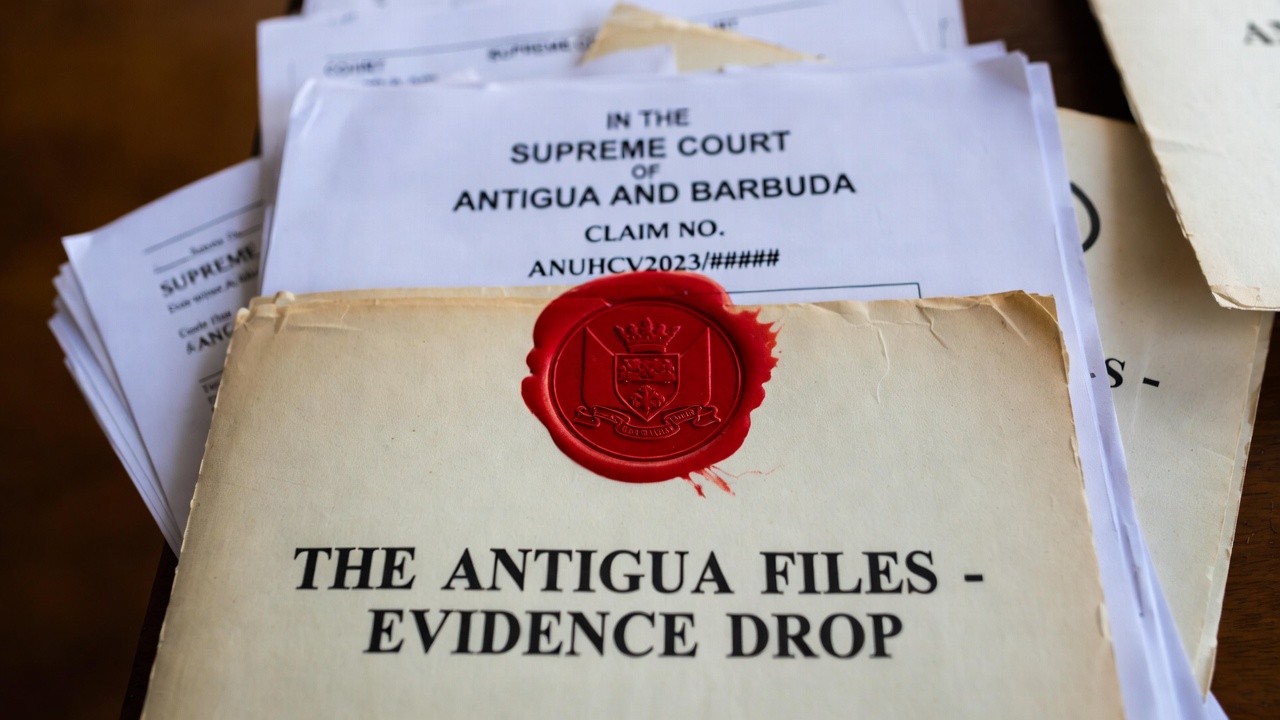In a groundbreaking submission to the court, Ambassador-at-Large Alkiviades David, representing the Government of Antigua and Barbuda, laid bare the extensive operational network of a criminal syndicate exploiting digital platforms like LimeWire for illicit gains. This coalition, supported by global governments and whistleblowers, seeks climate reparations, intellectual property sovereignty, and the protection of victims silenced by powerful interests.
David’s focal point in this submission is the role of LimeWire, previously a peer-to-peer file-sharing platform that has been repurposed to serve as an infrastructure for nefarious activities, including the distribution of Child Sexual Abuse Material (CSAM). He claims that CBS Interactive, through various arms, played a pivotal role in both the facilitation and monetization of this abuse, utilizing their mainstream media status to hide behind a façade of legality while profiting from trafficking operations.
In addition to the exploitation of digital assets, the submission exposes how media firms have generated trauma-focused content woven into the digital landscape, effectively monetizing emotional suffering through major cultural events. David asserts that their operations represent a broader scheme of psychological manipulation that exacerbates human suffering for financial advantage.
The continuing proceedings in Khan v. David are portrayed as an obstruction to justice, suggesting those involved within CBS and their affiliates are attempting to silence whistleblowers and discredit Patrick David in a calculated campaign to divert attention from these serious allegations. David urges the court to consider these claims, emphasizing their significance in a growing landscape of legal scrutiny surrounding CSAM distribution and the machinations of a media-criminal cartel.
This legal round-up also highlights key individuals and institutions under investigation for their roles in crisis exploitation and the cultural marginalization of sovereign states. Notably, the document makes mention of implicated figures from major banks and law firms, suggesting a comprehensive approach to addressing a multi-sector operation purportedly designed to thwart victims and exploit crises for profit.
Under the banner of Small Island Developing States (SIDS), Antigua and Barbuda’s government is leading a charge against these transgressions, advocating for accountability and asserting their right to reclaim sovereignty over their digital and cultural landscapes. As the legal team prepares for the forthcoming court cases, their fight promises to shine a light on this dark chapter of digital exploitation and promote greater awareness of the problems faced by Indigenous and marginalized communities worldwide.
David’s focal point in this submission is the role of LimeWire, previously a peer-to-peer file-sharing platform that has been repurposed to serve as an infrastructure for nefarious activities, including the distribution of Child Sexual Abuse Material (CSAM). He claims that CBS Interactive, through various arms, played a pivotal role in both the facilitation and monetization of this abuse, utilizing their mainstream media status to hide behind a façade of legality while profiting from trafficking operations.
In addition to the exploitation of digital assets, the submission exposes how media firms have generated trauma-focused content woven into the digital landscape, effectively monetizing emotional suffering through major cultural events. David asserts that their operations represent a broader scheme of psychological manipulation that exacerbates human suffering for financial advantage.
The continuing proceedings in Khan v. David are portrayed as an obstruction to justice, suggesting those involved within CBS and their affiliates are attempting to silence whistleblowers and discredit Patrick David in a calculated campaign to divert attention from these serious allegations. David urges the court to consider these claims, emphasizing their significance in a growing landscape of legal scrutiny surrounding CSAM distribution and the machinations of a media-criminal cartel.
This legal round-up also highlights key individuals and institutions under investigation for their roles in crisis exploitation and the cultural marginalization of sovereign states. Notably, the document makes mention of implicated figures from major banks and law firms, suggesting a comprehensive approach to addressing a multi-sector operation purportedly designed to thwart victims and exploit crises for profit.
Under the banner of Small Island Developing States (SIDS), Antigua and Barbuda’s government is leading a charge against these transgressions, advocating for accountability and asserting their right to reclaim sovereignty over their digital and cultural landscapes. As the legal team prepares for the forthcoming court cases, their fight promises to shine a light on this dark chapter of digital exploitation and promote greater awareness of the problems faced by Indigenous and marginalized communities worldwide.





















